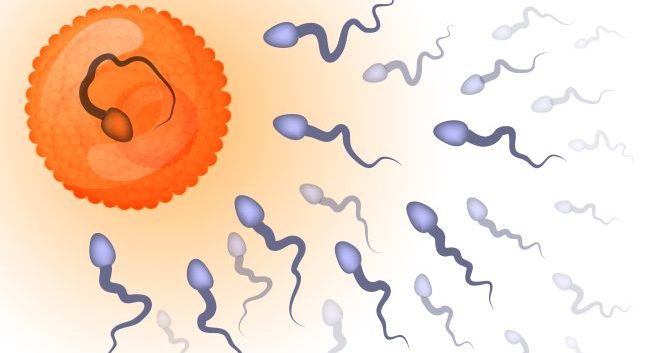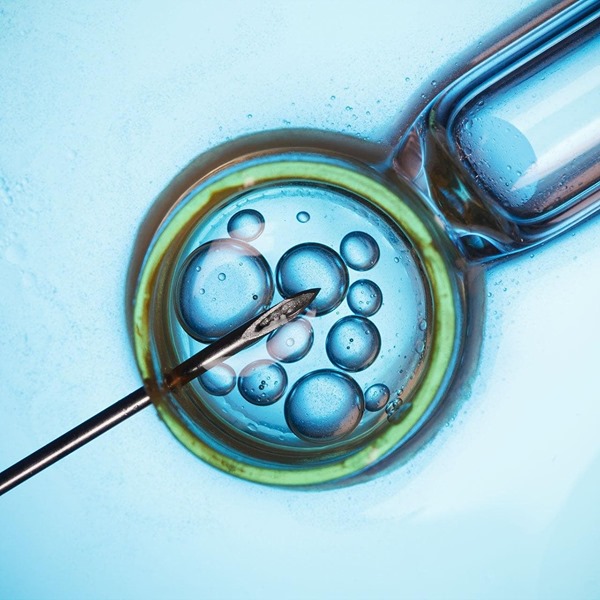All You Need to Know About Sperm Quality and Fertility


Sperm quality is one of the most critical factors in male fertility. While women often focus on their reproductive health, men’s sperm quality plays an equally vital role in conception. Understanding the elements that influence sperm health can empower men to improve their fertility and increase the chances of a successful pregnancy.
In this comprehensive guide, we’ll explore the essential aspects of sperm quality, what impacts it, and how it can be improved.
Get in touch for a Free Surrogacy Consultancy:
📲 +91-8800481100 ( WhatsApp, Line, Viber)
What is Sperm Quality?
Sperm quality refers to the ability of sperm to fertilize an egg and result in a healthy pregnancy. The quality of sperm is measured by several parameters, including:
- Sperm Count: The total number of sperm in a given sample.
- Motility: The ability of sperm to move efficiently toward an egg.
- Morphology: The shape and structure of sperm.
- Volume: The amount of semen produced during ejaculation.
- DNA Integrity: The genetic quality of the sperm.
Each of these factors plays a significant role in male fertility. Even if a man has a high sperm count, issues with motility, morphology, or DNA integrity can prevent successful conception.
Additional guide for male infertility:
Female Infertility- Causes, Symptoms, And Treatments
What Are The Causes Of Male Infertility And How To Manage It
Signs of Male and Female Infertility
10 Natural Ways to Boost Male Fertility and Increase Sperm Count
Key Factors Affecting Sperm Quality
Many factors can influence sperm quality, ranging from lifestyle choices to medical conditions. Let’s look at the most common ones:
| Factor | Impact on Sperm Quality |
| Age | Sperm quality naturally declines with age. Men over 40 may experience reduced sperm motility and DNA integrity, increasing the risk of genetic abnormalities. |
| Lifestyle Choices | Smoking, excessive alcohol consumption, and drug use can negatively affect sperm production and quality. These habits can lead to lower sperm count, poor motility, and abnormal sperm shapes. |
| Diet and Nutrition | Poor diet and lack of essential nutrients (like zinc, selenium, and vitamin D) can impair sperm health. A balanced diet with antioxidants can improve sperm quality by reducing oxidative stress. |
| Stress | Chronic stress can interfere with hormonal balance, leading to lower sperm production and decreased motility. |
| Environmental Toxins | Exposure to pesticides, heavy metals, and chemicals can damage sperm and lead to fertility issues. Occupations that involve regular exposure to toxic substances may negatively impact sperm quality. |
| Medical Conditions | Conditions such as varicocele (enlarged veins in the scrotum), infections, or hormonal imbalances can reduce sperm quality. Diabetes and obesity can also lead to reduced testosterone levels and poorer sperm parameters. |
| Medications | Certain medications, such as anabolic steroids or chemotherapy drugs, can impair sperm production and quality. Always consult a doctor about the effects of long-term medications on fertility. |
| Heat Exposure | Frequent exposure to high temperatures, such as from saunas, hot tubs, or tight clothing, can negatively affect sperm production. The testicles require a cooler environment to produce healthy sperm. |

 How Sperm Quality is Measured: A Semen Analysis
How Sperm Quality is Measured: A Semen Analysis
A semen analysis is the primary test used to assess sperm quality. During this test, a sample of semen is examined under a microscope to evaluate different parameters. Here’s what is typically measured:
- Sperm Count: A normal sperm count is considered to be 15 million sperm per milliliter or more.
- Motility: Healthy sperm should show forward progression. Ideally, at least 40% of sperm should be motile.
- Morphology: At least 4% of sperm should have a normal shape to be considered healthy.
- Volume: The normal volume of semen produced during ejaculation is between 1.5 to 5 milliliters.
- pH Level: The semen should have a pH level between 7.2 and 8.0 to support sperm function.
| Semen Parameter | Normal Range |
| Sperm Count | 15 million sperm/ml or higher |
| Motility | 40% or higher |
| Morphology | 4% normal-shaped sperm or higher |
| Semen Volume | 1.5 ml to 5 ml |
| pH Level | 7.2 to 8.0 |


The Role of Sperm in Fertility
While the egg is essential for conception, sperm plays a critical role in fertilizing the egg and determining the genetic makeup of the embryo. Sperm must be able to travel through the female reproductive system, penetrate the egg, and contribute healthy DNA to the embryo.
If sperm quality is compromised, it may lead to challenges in conception, increased risk of miscarriage, or even infertility. In cases where sperm quality is significantly low, assisted reproductive technologies (ART) like IVF or ICSI may be recommended.
Improving Sperm Quality Naturally
Improving sperm quality can often be achieved by making healthy lifestyle choices. Here are some strategies to boost sperm health:
- Maintain a Healthy Diet: Include foods rich in antioxidants, such as fruits, vegetables, and nuts. Omega-3 fatty acids, zinc, and vitamin D are also essential for sperm production.
- Exercise Regularly: Moderate exercise can improve hormonal balance and boost sperm production. However, avoid excessive high-intensity training as it may lower testosterone levels.
- Avoid Smoking and Excessive Alcohol: Smoking and heavy drinking are linked to reduced sperm count and motility. Quitting these habits can significantly improve sperm health.
- Manage Stress: Chronic stress can interfere with the hormones that regulate sperm production. Practicing relaxation techniques such as meditation, yoga, or deep breathing can help manage stress.
- Limit Exposure to Environmental Toxins: Avoid prolonged exposure to pesticides, chemicals, and heavy metals. If your occupation involves working with harmful substances, ensure that you take proper safety measures.
- Get Regular Check-ups: Regular medical examinations can help detect and treat conditions that may affect sperm quality, such as infections or varicocele.


Medical Treatment for Low Sperm Quality
If natural methods don’t significantly improve sperm quality, medical interventions may be necessary. These can include:
- Hormone Therapy: For men with hormonal imbalances, hormone treatments can help regulate sperm production.
- Surgery: Conditions like varicocele can sometimes be treated with surgery to improve sperm health.
- Assisted Reproductive Technologies (ART): If sperm quality remains low, procedures such as in vitro fertilization (IVF) or intracytoplasmic sperm injection (ICSI) may be recommended to assist in conception.
Cause of Female related infertility

 What is a normal sperm count?
What is a normal sperm count?
Semen quality and fertility are directly related.
If you are attempting to conceive a kid, sperm quality and sperm count can be essential. An abnormal count of sperm may also show an underlying condition of health.
A standard sperm count varies from 15 million sperms per ml of semen to over 200 million sperms. Anything less than 15 million sperm per mL is regarded as small, or 39 million sperm per ejaculate. A small count of sperm is often called oligospermia. A sperm count of more than 200 million sperm per mL is large or above average.
You can consult the nearest clinic or the doctor for your semen analysis. Semen analysis consists of the following things –
- Sperm Motility or movement of sperm
- Number of sperms
- Shape of sperms
The number, shape, and mobility of sperm are important for testing for male factor infertility. Your doctor may recommend testing up to three samples of sperm at different visits to get an accurate analysis.
Why the sperm count is important?
If you are planning to have a baby, a normal sperm count is often a necessity. Although the pregnancy may require just one egg and one sperm to fertilize, increased sperm count will increase your chances of pregnancy every month.
Your sperm count may be an important measure of overall health even if you don’t try to conceive. One research discovered males with low sperm were more likely than males with greater sperm counts to have a greater proportion of body fat (larger waistline and greater BMI) and greater blood pressure. They also had a greater metabolic syndrome frequency, or a greater chance of developing diabetes, heart disease, and stroke.
Importance of sperm count and fertility
Does sperm count affect fertility? Yes, the number of sperm is very important for the fertilization process. The decrease in sperm count will result in decreased chances of your partner getting pregnant.
Sperm quality problems can also influence your likelihood of becoming pregnant with a female. Male infertility factor is a prevalent reason that many couples have difficulty conceiving, often owing to low sperm quality. Couples may also have other health problems that may influence fertility.

 How can one preserve sperm count and fertility?
How can one preserve sperm count and fertility?
There are some ways in which male fertility and sperm count can be preserved.
- Accept a healthy lifestyle, with a balanced diet and periodic workouts.
- Do not drink alcohol or maintain drinking alcohol within the recommended boundaries.
- Do not use recreational drugs or smoke.
- Try to prevent exposure to industrial and occupational hazards by following safety practices and, where available, wearing protective clothing.
- Avoid sexually transmitted infections by taking the help of protective measures like using condoms.
Conclusion
Conclusion: Understanding and Improving Sperm Quality
Sperm quality is a vital component of male fertility. By understanding the factors that impact sperm health and taking steps to improve it, men can significantly increase their chances of successful conception. Whether through lifestyle changes or medical intervention, improving sperm quality is a realistic goal for many men who are trying to conceive.
If you’d like to learn more about IVF, Egg Donation, or surrogacy services globally, check out the rest of our website at IVF Conceptions.
FAQs About Sperm Quality and Fertility
- What is a normal sperm count? A normal sperm count is 15 million sperm per milliliter or more.
- Can sperm quality improve with lifestyle changes? Yes, lifestyle changes such as eating a healthy diet, exercising, and avoiding smoking and alcohol can improve sperm quality.
- How long does it take to improve sperm quality? Sperm takes about 3 months to develop, so it may take a few months to see improvements after making lifestyle changes.
- Does age affect sperm quality? Yes, sperm quality can decline with age, especially after 40, leading to lower motility and increased risk of genetic abnormalities.
- Can stress reduce sperm quality? Chronic stress can negatively impact sperm production and motility, so managing stress is important for maintaining good sperm health.
